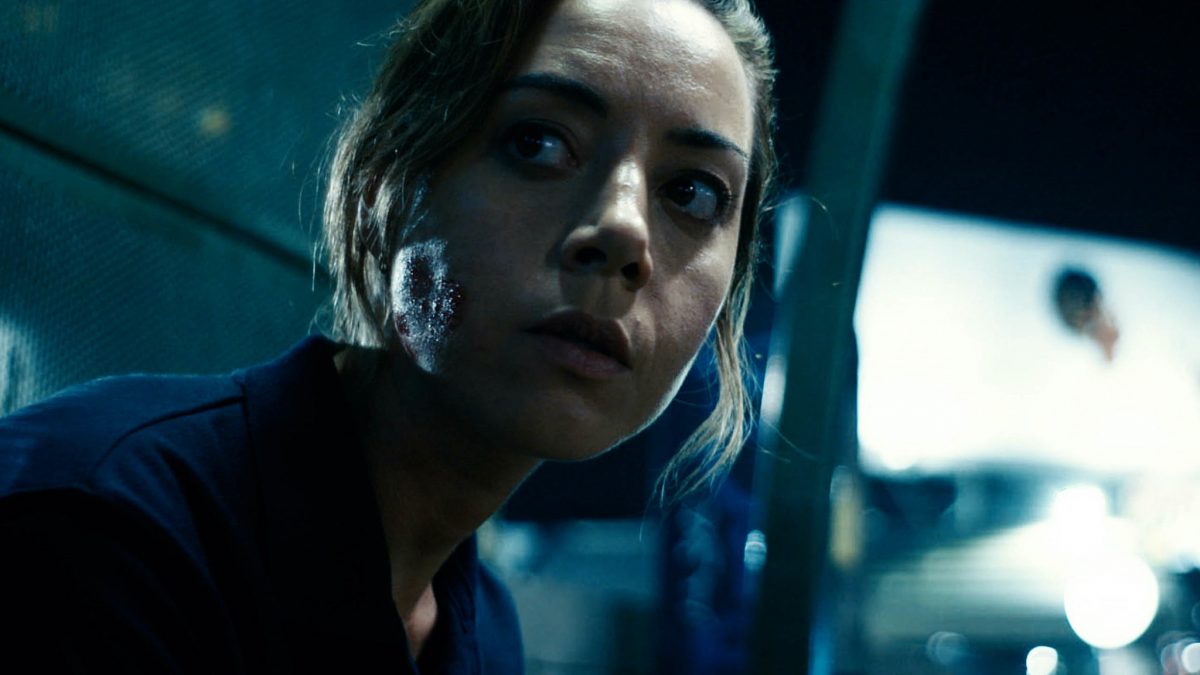One of the things that made Breaking Bad so compelling was the motivation of the hero/villain. The series began with Walter White, who had never smoked so much as a single cigarette, receiving a lung cancer diagnosis. His treatment is going to cost a lot of money that the high school chemistry teacher doesn’t have. This is a situation anyone in the United States (and, among industrialized nations, only the United States) could face. The solution the high school chemistry teacher lands on is to use his considerable and underutilized talents to cook methamphetamine. Is it a choice you and I would make? Probably not, but we understand why he made it. And who could say that we would not misuse our own talents in a similar way, if the need was there and the opportunity presented itself?
The only-in-America situation Emily (Aubrey Plaza) faces in Emily The Criminal differs from Walter White’s in degree, not in kind. She has a degree that would seem to qualify her for a high-paying job in advertising, but there’s a problem. She has a DUI on her record, because she was the least wasted person in her friend group that went to a music festival, and had the bad luck of getting pulled over when she tried to drive everyone home. One of those friends (Megalyn Echikunwoke) is trying to help her get a good job out of guilt, but none of the fancy suits want to hire a felon. So instead of working the week and brunching on Sundays with her college friends, Emily is stuck delivering catered lunches to the gleaming glass towers of Downtown Los Angeles.
Meanwhile, a co-worker at the catering gig steers Emily towards a lucrative freelance opportunity: working as a “dummy shopper,” using stolen credit card information to buy big screen TVs, which are then sold for a major profit on the black market. Emily quickly learns that she can make a killing criming. She’s detail oriented, a hard worker; attractive; tough, but can be charming when she wants to be; and knows how to perform privilege. Plus her contact Javier (Bernardo Badillo) is hot.
Still, she’s torn between the promise of the straight life and going full Heisenberg. Even after she stops bothering to show up for her cater waiter shifts, she’s still trying to get an interview at the ad agency. Until the end, Emily doesn’t think of herself as a criminal, just as someone doing what they have to do to get by.
Aubrey Plaza was the driving force behind Emily The Criminal, as she found the screenplay by John Patton Ford and spearheaded the production by agreeing to take on the title character. Plaza, like many who started out in comedy, is an incredibly good actor when she turns her timing and control towards drama. Ford’s screenplay is a finely honed machine, and the jittery camerawork works perfectly, especially in a harrowing scene where Emily has to brazen her way through a car heist while surrounded by gangsters twice her size.
You can be forgiven if you get a strong Uncut Gems vibe from Emily The Criminal. But instead of Adam Sandler’s gambling problem, Emily’s dilemma is student loans. She’s burdened with debt sold to her on the idea that her post-college income would be sufficient to easily pay it all back, only to find out how easily a little bad luck can derail your life. Just as the success of Breaking Bad hinged on the considerable acting skills of Bryan Cranston, this story wouldn’t work nearly as well if it was anyone but Plaza asking for our sympathy while doing bad stuff. Ford and Plaza succeed in portraying the subversive thrill of living as a secret outlaw, while also showing the corrosive effects of a life full of deception and betrayal. Emily The Criminal is another masterful performance by Plaza, who has quietly become one of the best actors of her generation.
